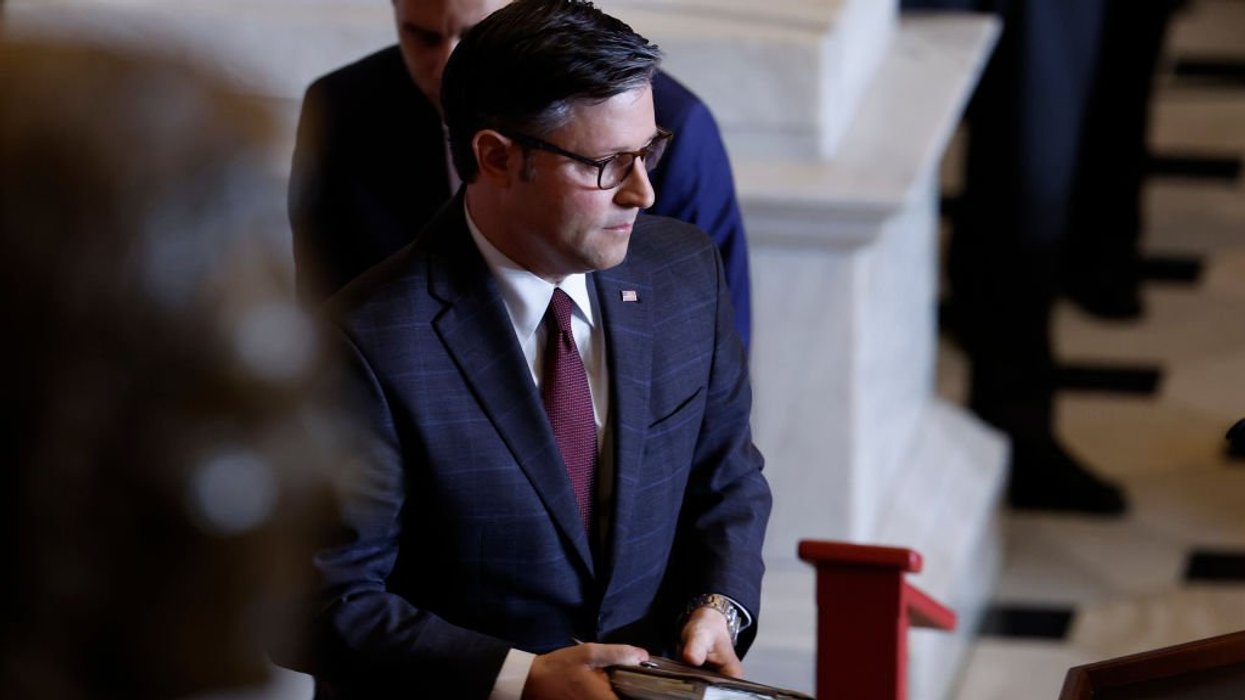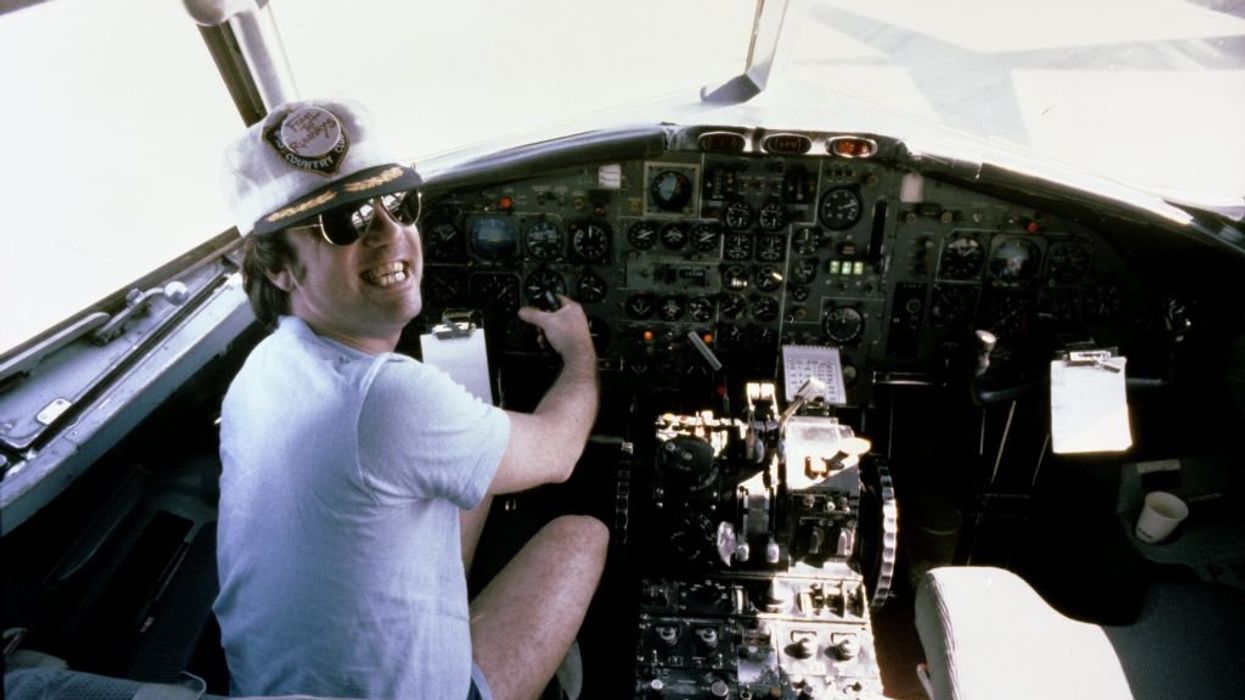
© 2024 Blaze Media LLC. All rights reserved.
Iran is a member of OPEC, the Organization of the Petroleum Exporting Countries. It ranks among the world's top four countries that hold both proven oil and natural gas reserves. Just a little over two years ago, in 2010, Iran counted as the world’s third-largest exporter of crude oil, after Saudi Arabia and Russia.
Iran also sits atop the world’s second-largest natural gas reserves. However the country’s energy industry, particularly its natural gas production, suffers from severe under-development, partially due to sanctions imposed on the Islamic Republic by the international community. These sanctions come as punishment for Iran’s continued drive to acquire nuclear technology which Iran claims is intended for peaceful purposes such as generating electricity. But why does a country with so much proven oil and natural gas reserves need to delve into the nuclear conundrum and all the implications that accompanies the nuclear dossier?
Natural gas counts for 54 percent of Iran's total domestic energy consumption. Oil makes up the difference, though there are marginable levels of coal and some energy being derived from hydropower.
Considering the vast gas reserves that Iran is sitting on top of, and how much safer and cleaner natural gas is on the environment when compared to nuclear energy, why then are the Iranian mullahs so hell bent on pursing their nuclear goals?
The United States, Israel, Western European nations and most of Iran’s Arab neighbors, however have no room for doubt that the Iranians intend to develop nuclear technology in order to weaponize it and acquire the capability to deliver nuclear strikes if it should ever decide to do so. There is no doubt too that once Iran becomes a nuclear power they will command greater respect – if not greater trepidation -- from their Arab neighbors.
Arabs and Iranians have historically been at odds over cultural, political and religious differences. As a reminder, the majority of Iranians are Shia Muslims, and the vast majority of Arabs belong to the mainstream Sunni branch of Islam. The animosity between Sunni and Shia is as real today as it was when the original schism came about in the year 632 as the result of a dispute over who should succeed the Prophet Muhammad. Most of his followers wanted the “ummah” or the Muslim community to choose among the elite who would succeed the prophet as leader of the “believers.” Others, a much smaller number, believed it should be a member of the prophet’s family who should inherit the mantle of power, and wanted Ali, the prophet’s son-in-law to lead the community. The Shia-Sunni split is at its root one of party politics not of religion. But the hate is as real today as it was in 661, when Ali, who eventually became the fourth caliph, was killed.
The animosity between the two groups is highlighted in a British comedy film, “The Infidel,” where the main character, a Muslim Brit finds out he was originally Jewish. Explaining his situation to friends and family he exclaims! “Hey, at least I am not a Shia.”
Today Iran stands accused by the United States of supporting terror groups and having been responsible for attacks carried out by terror groups against US and Israeli interests and for being responsible for the death of US and Israeli citizens and military personnel.
So with all this natural wealth and the potential to use those resources towards a more positive goal, where oil and natural gas revenues could be funneled towards more lucrative ends such as building a better and brighter future for its people, why then is the Islamic Republic devoting so much time, energy and resources towards such confrontational issues as pursuing the nuclear dossier and supporting organizations that employ the use of terror?
The answer is perhaps as complex as the web that weaves Iran’s ruling theocracy. Iran feels threatened by the US hegemony in the region, and indeed in the world, given that the United States is presently the only remaining superpower. During the Cold War, Iran, although weighed in on the side of the West, the Persians actually found some balance by the fact that the Soviet Union, with which it shared a border, provided some counterbalance to US power. But with the demise of the USSR the rules suddenly changed and American power – and some may add, American arrogance – found itself unchecked.
The fall of communism and the disintegration of the Soviet Union had a huge effect on Iran. The Central Asian countries –Turkmenistan and Afghanistan, with whom it shared borders, were Muslim countries now open to possible Iranian influence. Indeed, since the 1979 Islamic revolution that ousted the shah and brought in the mullahs Iran has been trying to export its Islamic revolution to the Arab world with very little success. After more than 30 years of trying the only success has been the little inroads Iran has made in Lebanon with that country’s Shia community and with Hamas in Gaza, principally because the Palestinian Islamic Movement, although Sunni, grabbed the only hand that was reached out to it.
Becoming a nuclear power, the Iranians believe will put them in a position of superior power in the Gulf region, where they still feel the threat from their age-old adversaries is as real today as it was in 632. Unleashing the nuclear demon from the magic lamp however could prove fatal and irreversible.
Related articles:
- Iran to Install Thousands of New Centrifuges for Nuclear Enrichment
- Tepid Voter Turnout Sets Back Bulgarian Nuclear Power Plans
This report is from Oilprice.com, home of the premium publication Oil & Energy Insider. Oil & Energy Insider gives subscribers an information advantage when investing, trading or doing business in the energy sectors. To find out more on how you can get a legal inside advantage in the energy markets please take a moment to visit: https://oilprice.com/premium
Want to leave a tip?
We answer to you. Help keep our content free of advertisers and big tech censorship by leaving a tip today.
Want to join the conversation?
Already a subscriber?
more stories
Sign up for the Blaze newsletter
By signing up, you agree to our Privacy Policy and Terms of Use, and agree to receive content that may sometimes include advertisements. You may opt out at any time.
© 2024 Blaze Media LLC. All rights reserved.
Get the stories that matter most delivered directly to your inbox.
By signing up, you agree to our Privacy Policy and Terms of Use, and agree to receive content that may sometimes include advertisements. You may opt out at any time.


